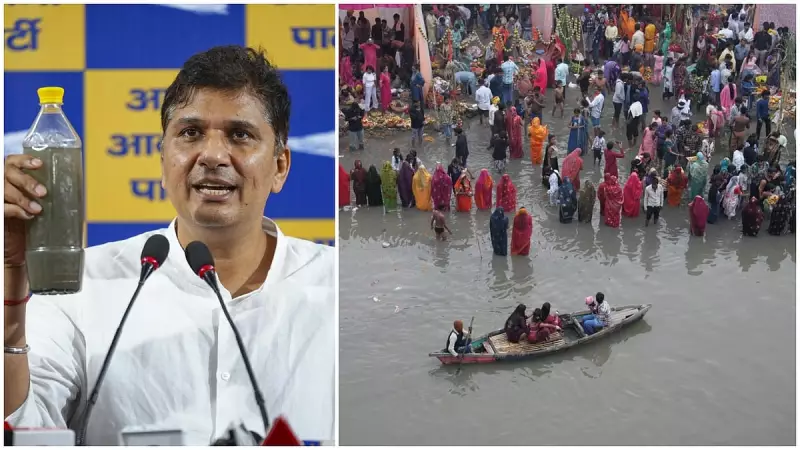
Delhi's political landscape has been rocked by fresh controversy surrounding the sacred Chhath Puja festival, with the Aam Aadmi Party launching sustained attacks against the Bharatiya Janata Party over the condition of the Yamuna river.
The Allegation That Sparked the Political Firestorm
According to AAP leaders, Prime Minister Narendra Modi was forced to cancel his planned ritual dip during Chhath Puja celebrations after the exposure of a specially prepared pond raised serious questions about the actual state of the Yamuna's water quality. The opposition party claims this incident reveals the government's failure to address the perennial pollution problems plaguing Delhi's primary water body.
Yamuna's Troubled Waters Become Political Battleground
The Yamuna river, considered sacred by millions of Hindus, has long been a subject of environmental concern and political debate. The recent Chhath Puja controversy has brought the issue back into sharp focus, with both major political parties using the platform to advance their narratives about governance and environmental management.
AAP's persistent offensive against the BJP administration highlights the growing tension between the two parties as they position themselves on critical urban infrastructure and environmental issues. The allegations suggest that the government's claims about improving Yamuna's water quality may not align with ground realities.
Festival Politics and Environmental Accountability
Chhath Puja, one of the most significant festivals for residents of Bihar and eastern Uttar Pradesh living in Delhi, involves devotees offering prayers to the Sun God and taking ritual dips in water bodies. The political controversy surrounding this year's celebrations has added a new dimension to the traditional observance.
The ongoing war of words between the political rivals underscores the complex intersection of religious traditions, environmental stewardship, and political accountability in India's capital city. As both parties exchange accusations, Delhi residents are left wondering about the true state of their river and the effectiveness of pollution control measures.






